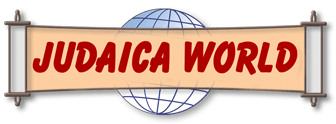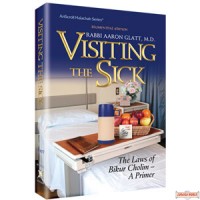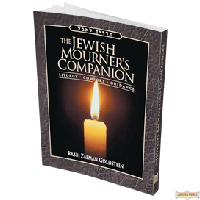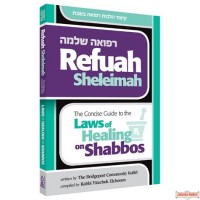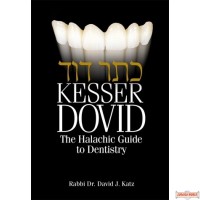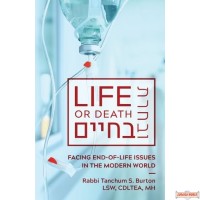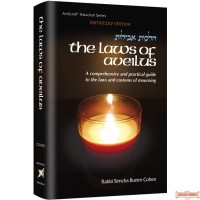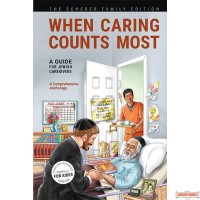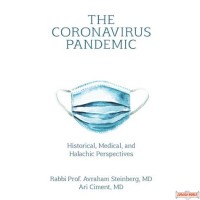Medical Issues and Halacha
- A halachic and medical guide - with down-to-earth advice Learn More
- All liturgy FULLY TRANSLITERATED in English, including the complete "MINCHA" and "MAARIV" services for the Shiva home!
This outstanding compact-size book will guide you through the difficult times of illness and death, presenting Jewish tradition in a way that is both sensitive and instructive. Endorsed by leading rabbis, hospital chaplains, and family counselors, this all-in-one guide will help you know what to do when faced with these life-changing challenges.
Written for people of all backgrounds, levels of observance, and understanding, this book is a fitting companion for family and friends, including visitors at the funeral and Shiva home.
INCLUDES:
An overview of life, illness and death in Jewish thought.
Laws and customs for visiting the sick.
Jewish perspective on end-of-life issues (e.g. living wills, organ donations, etc.).
Dealing with the last moments of life - what everyone should know.
Before the funeral, at the cemetery, following burial.
Mourner's Kaddish, Shiva, Shloshim, Yartzeit, and Yizkor.
All necessary liturgy, including Mincha (afternoon), Maariv (evening) prayer services, and Mishnayot, along with easy-to-read English transliteration and translation.
Inspirational readings and meditations. Learn More
- People are often unprepared to deal with halachic issues regarding health that arise on Shabbos. These can range from treating a simple headache to emergency medical care.
This book provides a basic understanding of the laws of healing on Shabbos so that even a layperson will know how to address questions that may arise.
Topics include:
Handling emergencies
Taking medication
Treating wounds
Childbirth
Caring for pets
Visiting the sick
Refuah Sheleimah is a concise handbook that provides guidance when time is of the essence Learn More
- Rabbi Dr. David J. Katz, in Kesser Dovid - The Halachic Guide to Dentistry, provides an in-depth analysis of the wide range of laws pertaining to the practice of Dentistry. Complicated topics and texts are carefully examined and presented in a clear and inclusive fashion.
Thought provoking discussions are raised regarding halachah and critical issues of our times. The subjects are constructed to encourage continued study and deliberation of the specific halachah being considered. Rabbi Dr. Katz provides general guidelines for both dental and halachic procedures, whose applications were evaluated in consultation with both dental/ medical professionals and leading halachic decisors. Learn More
Bubby is in the hospital being fed intravenously. The doctors insist that we stop feeding her since there is "no hope", she has no "quality of life", and resources are being "wasted" on her. Are they right? What should we do?
This is only one example of actual cases that are happening more and more often around the world. Often basing themselves on "quality of life" (and the desire to save hospitals money), many in the medical establishment and society as a whole are pushing families to terminate treatment of their ailing loves ones. Confused, alone, and well-intentioned, many Jewish families do not feel they have the clarity or knowledge to stand up to the pressure.
Life or Death is a much-needed response to society's changing values. In this short, easy to read, yet powerful volume, readers will gain clarity and focus on the Torah's views about end-of-life issues - and gain motivation and direction about what each of us can and should do to save life.
About the Author
Rabbi Tanchum Shlomo Burton studied at R.I.E.T.S. under Rabbi Yehuda Parnes shlit"a and Rabbi Gershon Yankelewitz zt"l. He later learned under Rabbi Dovid Miller at the Gruss Kollel in Jerusalem, where he received semicha. Rabbi Burton completed his graduate studies at the Wurzweiler School of Social Work, earning an MSW in clinical social work. He then trained for several years at the Viktor Frankl Institute under Dr. Teria Shantall, a close student of Dr. Viktor Frankl, and received a Clinical Diplomate in Logotherapy. He has worked in clinical, educational, and chaplaincy settings for over two decades, and has been a presenter at mental health conferences and training workshops internationally. In addition, he has written Torah curriculum on many subjects that is used by Orthodox Rabbis around world. Rabbi Burton is a regular lecturer at the PATH Institute in Jerusalem, where he maintains a private practice. Learn More
- The loss of a family member brings mourning, tears, sadness. It is at this sorrowful time that we find ourselves clinging more than ever to the Torah, and specifically to the laws and customs of mourning. And it is at this time that we need answers to our questions on the halachos of mourning - sometimes very urgently.
Rabbi Simcha Bunim Cohen has mastered the art of explaining halachah in a way that can be immediately and clearly understood. For laymen, and especially for those who need a quick and definitive answer to their questions, this beautifully structured book takes the mourner from moments before the death of a loved one, through aninus, the funeral, the various stages of mourning, Kaddish, and up through the first yahrzeit. The concepts related to the halachah are clearly defined, and the halachah is presented concisely, so the reader immediately knows what to do. For those who want to study further, Hebrew footnotes show sources and discuss other opinions, and a detailed index makes it easy to find specific topics and questions.
Does a person who'd been an onen have to make up the tefillos he missed, when the levayah is over? What is the special zimun said by mourners? May a person in the year of aveilus invite others for a Shabbos meal? Attend a grandson's bar mitzvah? Can a student send his teacher mishloach manos during the teacher's year of mourning? Case after case, question after question: Here are the answers, set out simply and with great clarity.
We should not know of sorrow, but when mourning comes upon us we can turn to the Laws of Aveilus, and be comforted by our Torah. Learn More
- This fascinating collection of teachings from one of contemporary Judaism’s greatest halachic authorities includes questions such as:
- What are the parameters of the mitzvah to heal the sick?
- How does one pray for a sick person?
- What are the personal halachic obligations of medical professionals?
- What is the Torah view of alternative medical treatments?
- What risks can one take to save life?
- What does Jewish law say about organ donation?
- Is it permissible to refrain from vaccinating children?
- May words of Torah be used as a means of healing?
- What is the Torah approach to OCD?
- May a sick person refuse treatment?
Translated by Dr. Fred Rosner and edited and adapted by Rabbi Immanuel Bernstein, this fascinating and important sefer is a must for medical professionals, scholars, and all types of interested Jews.
HaGaon HaRav Asher Weiss, shlita, is a towering Torah giant and one of the world’s leading Torah sages and orators. Rav Weiss possesses an encyclopedic knowledge of Jewish law and is known for his eloquence, insight, and clarity. His lectures are broadcast throughout Israel and across the globe to tens of thousands, and he speaks to all types of Jews. One of the world’s leading authorities in the area of medical halachah, he is contacted regularly by rabbis and Torah scholars from around the world, spanning the full spectrum of Jewish life, for his rulings and advice in all areas of Jewish law. Learn More
- Hard-to-Find Halachah for Everyday LivingDoes one recite Shehecheyanu when he receives dentures?Is one permitted to brush his teeth on a fast day?In what instances can a dentist perform dental work on Shabbos?Do teeth with fillings need to be kashered before Pesach?Do teeth that fall out need to be buried?
Teeth and Dentistry in Halachah is a groundbreaking, comprehensive book dealing with all facets of teeth. From hashkafic insights into the pain babies experience when teething, to detailed historical information about teeth and brushing, to fascinating vignettes about how gedolim viewed their teeth, this book brings a whole new dimension to a part of our body that we take so much for granted.
Written in a clear and concise format by noted author Rabbi Moishe Dovid Lebovits, this book is a valuable resource for anyone who wants to know about the many halachos related to teeth and dentistry.- Includes Special Supplement: Writing Sefarim and Related Halachos Learn More
Being a caregiver for a loved one who is ill or aging is a very important role, and yet, it is a very daunting one. As a caregiver, one is given the opportunity to help his or her loved one in ways that have never been previously applicable. At the same time, the responsibility is very great, and there is so much to learn. There are medical and legal issues. There are practical implications. And much, much, more.
This book is a compilation of articles that offers information, inspiration, and understanding. It contains advice from rabbis, doctors, lawyers, other professionals, and laypeople offering various perspectives about this overwhelming topic.
When Caring Counts Most: A Guide for Jewish Caregivers will empower you with confidence and knowledge, helping you and, in turn, your loved one.
BONUS! Includes a pamphlet in English and Spanish that provides guidance for aides on the special considerations of working in a Jewish home environment. Learn More
Rabbi Professor Avraham Steinberg is a pediatric neurologist, a rabbi, and an ethicist. He is currently the director of the Medical Ethics Unit and the chairman of the IRB at Shaare Zedek Medical Center. He is also the head of the Editorial Board of the Talmudic Encyclopedia.
Steinberg is the author of the Encyclopedia of Jewish Medical Ethics (in Hebrew and English) and Ha’refuah K’halachah (in Hebrew). He is the laureate of the prestigious Israel Prize and the Worthy Citizen of Jerusalem award (Yakir Yerushalayim). Involved with many public committees and legislations in Israel concerning medical ethics, Steinberg has discussed many modern issues in medicine with the Gedolim, including Rav Shlomo Zalman Auerbach, zt”l, Rav Yosef Shalom Eliashiv, zt”l, Rav Eliezer Yehuda Waldenberg, zt”l, Rav Ovadia Yosef, zt”l, and many others. He has published many of their halachic rulings on these issues.
Ari Judah Ciment, son of Larry and Helen Ciment, is board certified in internal medicine and pulmonary and critical care medicine. He has been practicing in Miami Beach, Florida, since 2008. In addition to many medical field achievements, he has been an invited grand rounds lecturer for several hospitals and universities. As a medical ICU attending in a residency teaching program, he regularly teaches classes on a variety of topics, including pulmonary embolism, sepsis, ARDS, and now COVID novel therapies.
Dr. Ciment is currently president of the medical staff with the Mount Sinai Medical Center and is on the board of the Hebrew Academy of Miami Beach, serving on their medical committee. In addition, he served as adjunct professor on Jewish medical ethics at Touro College and has arranged several medical ethics symposiums, most notably, with the renowned ethicist Rabbi Avraham Steinberg as well as BU ethicist Michael Grodin.
Dr. Ciment is the author of Pirkei Dr. Ari (Mosaica Press, 2019), which blends the weekly parashah with an ethic from Pirkei Avos. His hobbies include basketball, tennis, guitar, and studying Talmud. He lives with his wife, Elissa, and their three children, Tehila, Jack, and Sam, in Miami Beach, Florida. Learn More
